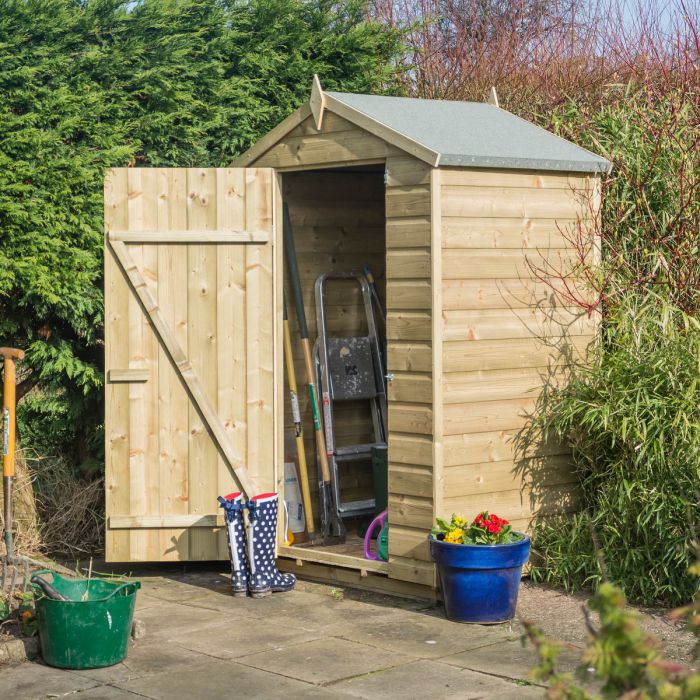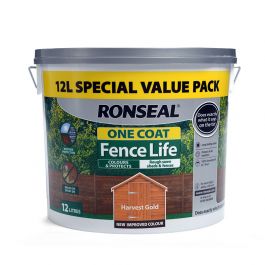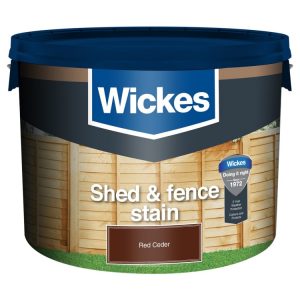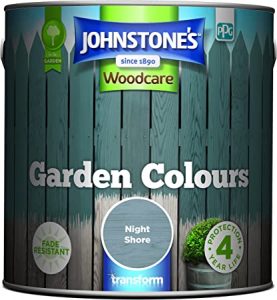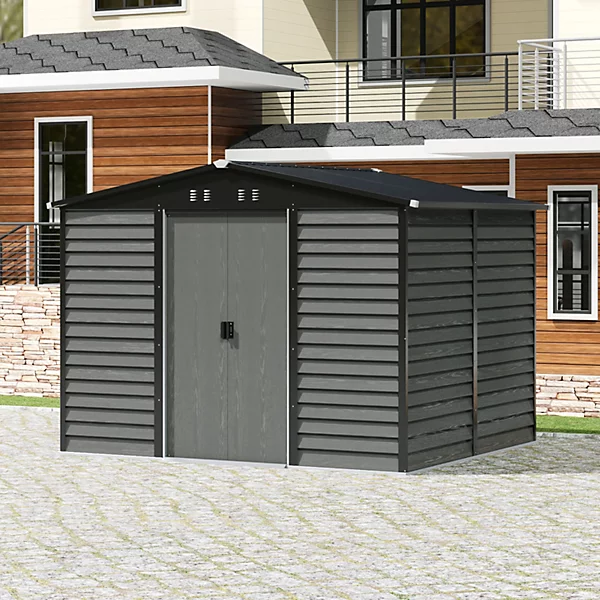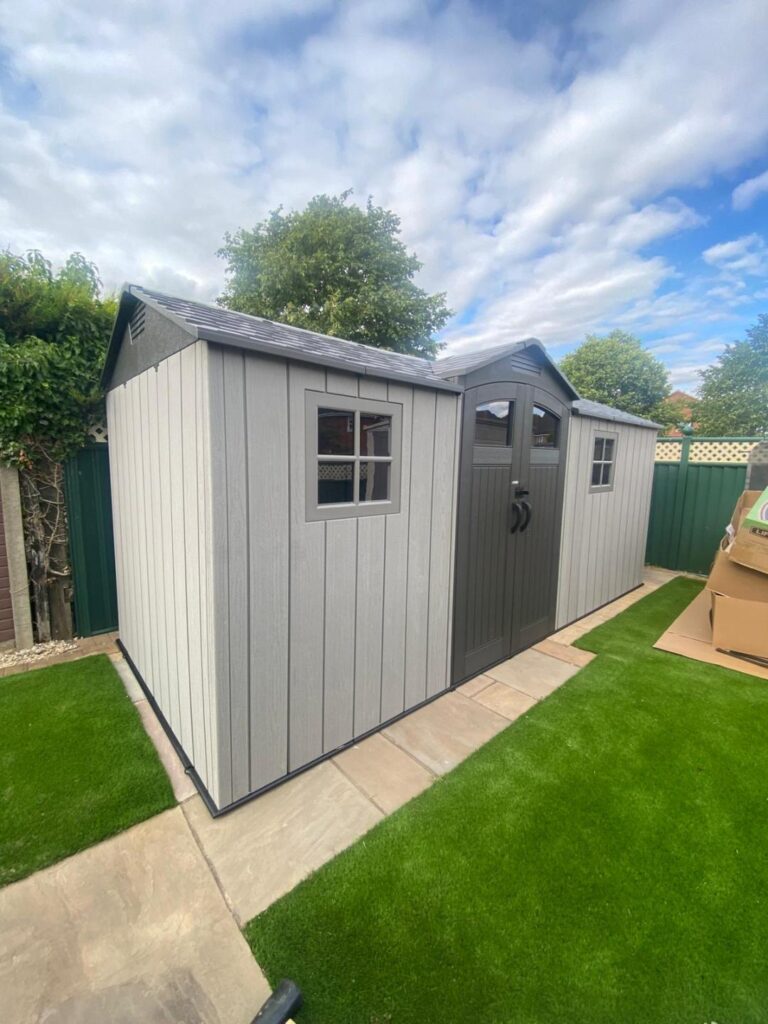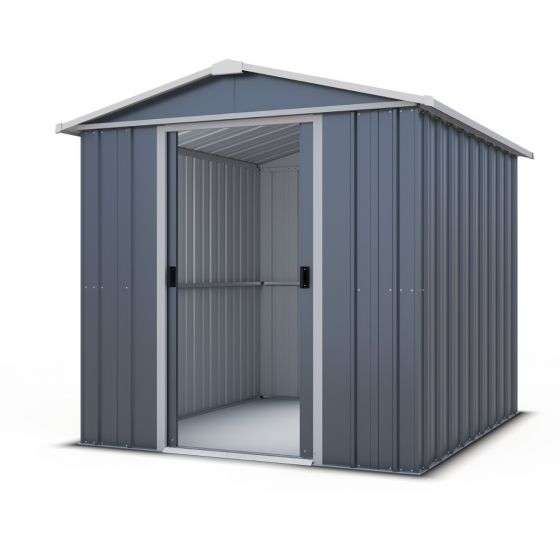Revive or revamp your timber shed with the perfect wood paint
Give your timber shed a new natural look or make a striking al fresco statement with our guide to the best paint solutions for your shed
Whether your shed is little more than a repository for garden equipment that barely gets a glance most of the year or it’s your essential go-to oasis from the family, you’ll want to invest in the absolute best shed paint you can afford. There are two excellent reasons for this. First, if you don’t paint it semi-regularly, the shed will rot and fall down. Second, if it rots and falls down, you’ll have to buy a new one and paint that instead.
While the thought of prepping and painting your shed can be less than appealing, if you get it right and use quality paint, you’ll discover that what was once an unpleasant annual affair can become a task that actually requires less frequent attention, with some options offering up to five years’ protection from the weather. Do these cost more? Yes. Is the extra expense worth it? Undoubtedly.
There are various different types of “paint” to choose from, including wood stains, wood varnishes and actual wood paints. Which you choose depends on the finish you want to achieve. Below, you’ll find our recommendations; if you don’t know where to begin, take a look at our comprehensive buying guide immediately below.
How to choose the best shed paint for you
Shed paints – what’s the difference between them?
Wood stains, which are available in a wide range of colours, are for those who want to give their shed protection from the elements while still being able to enjoy the natural grain, as stain penetrates the wood to colour and protect while leaving the grain visible.
Wood varnish also allows the grain to shine through, as this usually clear treatment sits on the surface to form a weatherproof barrier.
Finally, wood paint is the one to go for if you’re looking to make a bolder statement. Usually opaque, wood paint covers up the grain completely, but is available in a range of colours, from unassumingly muted shades to options at the vibrant end of the colour spectrum. Which you choose depends on the finish you want to achieve, so day one of painting your shed begins with a question of aesthetics: natural or not?
I’ve settled on a look, now what?
As with any decorating job, preparation is key. Getting your prep right will not only make things easier but also result in a finer finish.
So, once you’ve decided on your type of treatment, brand and colour, read all the manufacturer’s instructions on how to apply the paint, how long to let it dry between coats and, of course, how many coats are recommended.
Armed with that knowledge, it’s time to sort your shed surface. Use a wire brush to remove any old flaky paint, dust and dirt. Next, mask off any hinges and windows and, depending on how you intend to apply your paint, cover the roof overhang with newspaper (taped on). You’ll also want to use dust sheets to protect the ground where you’re painting, plus any nearby fencing.
Once that’s done, it’s time to paint, so check to see whether a primer or undercoat is called for, and reach for the brush, roller or sprayer, as per the manufacturer’s recommendation. Remember to stir the paint before first use, and several times during the painting process.
I’m all set – anything else?
Of course – health and safety! When dealing with any paint, we strongly suggest the use of protective eyewear, a face mask and decorator’s gloves. It’s also a good idea to plan your painting in conjunction with the weather forecast. Pick a warm, dry day, or you may end up watching your work wash away. Finally, painting can get messy, so it’s probably a good idea not to wear any clothes you’re particularly fond of!
Ronseal One Coat Fence Life: Best shed paint for least work
Yes, it does clearly say “fence” on the tin, but Ronseal One Coat Fence Life is an ideal stain for all manner of rough sawn exterior wood, and suitable for sheds in particular.
Available in six natural colours, including Tudor Oak Black for gardens of a more Goth bent, this stain penetrates the wood to give it excellent protection for up to two years – from both exposure to wet and cold weather and the greying effects of UV light – while allowing the natural grain to show.
Offering up to three years of colour performance and full protection from UV light and the extremes of the elements, the only downside is that, being a little on the thin side, if you’re trying to cover up previous paint, you may need additional coats to achieve your ideal end look. But then, with nine litres at a quid each, you’ve got plenty to work with.
It’s easy to apply using a brush or spray (the latter cutting your labour time by around 50%) and, as the name suggests, unless you’re attempting to cover over a much brighter, contrasting colour, you only need to apply one coat. It’s shower-proof within an hour and fully dry in four.
Wickes Shed & Fence Stain: Best shed stain on a budget
This highly protective treatment from Wickes comes in at just £1 per litre. Cheap as wood chips and available in five nature-aping colours, the formulation goes on easily, whether applied with a brush or a roller. It can be quite runny, though, so be careful not to overload your tool of choice, or you’ll lose half of it to your dust sheets.
As its name suggests, this varnish is so tough it can even withstand the heavy weather-battering it would likely receive at sea. So, a wet winter in the suburbs should pose no problem.
Johnstone’s Woodcare Outdoor Yacht Varnish: Best shed varnish option
Setting aside the stain and paint options, what we have here is a clear varnish that will give the timber of your shed a light gloss look, through which the wood’s grain can clearly be seen.
As always, ensure all surfaces are clean and smooth and sand down any previous varnish before applying the Yacht Varnish with a brush, working with the grain to get a flawless finish. Johnstone recommends a minimum of two coats for best results, so once you’ve waited out the reasonably long drying time, lightly sand down the first coat before starting on the second.
Obviously a time-sensitive job, you’ll need to make sure you have a couple of rain-free days lined up before starting work, but when it’s done your shed will look its natural best and be able to withstand even the wettest waves of weather.
Johnstone’s Garden Colours: Best shed paint for colour options
There is choice, over-choice, then Johnstone’s Garden Colours. This range of paints is perfect for your shed and comes in 20 striking colours, from the almost ghostly Natural Vanilla to the decidedly arresting Merry Berry (not to be confused with the TV cake-enthusiast).
Offering a full four years’ protection from the worst Mother Nature can throw at it, the easy-on formulation requires more effort than Ronseal’s One Coat option above. A single application may be sufficient, depending on the state of your shed, but two coats is probably the minimum requirement. There’s also a longer drying time to contend with, but for anyone looking to make a statement in their garden, courtesy of a richly tinged shed that truly stands out, the result will be worth every extra second.

